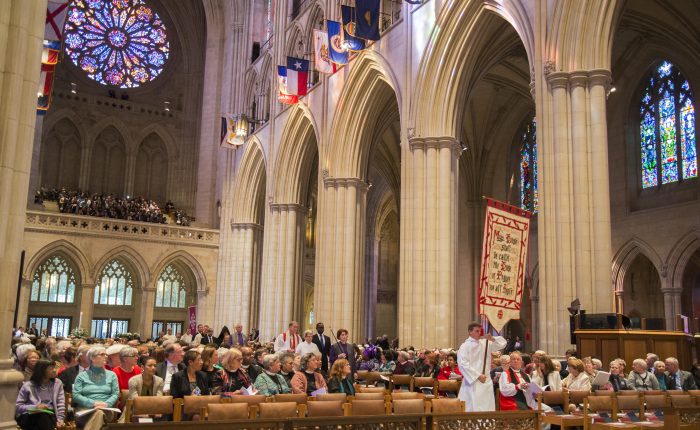The
Influence of Materialism
Stephen
Terry
Commentary
for the January 6, 2018 Sabbath School Lesson
 “Jesus left the temple and was walking
away when his disciples came up to him to call his attention to its buildings. ‘Do
you see all these things?’ he asked. ‘Truly I tell you, not one stone here will
be left on another; every one will be thrown down.’” Matthew 24:1-2, NIV
“Jesus left the temple and was walking
away when his disciples came up to him to call his attention to its buildings. ‘Do
you see all these things?’ he asked. ‘Truly I tell you, not one stone here will
be left on another; every one will be thrown down.’” Matthew 24:1-2, NIV
We have an interesting topic for study this quarter:
Stewardship. Put simply this is an apologetic for the church’s claimed right to
have its hands in the pockets, wallets, and purses of its parishioners. Since
the quarterly is a church publication, it can necessarily be expected to
represent only the position of the institutional church on the matter, a church
that relies heavily on its ability to persuade its members to fund without
question its clerical and administrative classes, most notably in an effort to
slay selfishness in the members hearts. Naturally, there will be no options for
dissent covered in the official church publication. Therefore, the commentaries
from Still Waters Ministry will focus on presenting the alternatives both biblical
and logical to simply acquiescing to the never-ending financial demands that
our infrastructure makes upon resources that might be better utilized
elsewhere. In short, the quarterly will present the responsibilities of the
members from the institution's perspective, and we will focus on the
responsibilities of the institution to its members and to present an accurate
picture of God’s counsels regarding wealth, the church, and its ever-growing
appetite for more and more money.
Strangely, the church, although founded upon the Rock,
Jesus Christ, tends to overlook His counsels on wealth and what to do with it.
Instead they look past the New Testament to the Old, where a system of tithing
was established to support a priestly caste that officiated, first in the tabernacle
or tent, then later in the temple. The sacrificial system had been set up to
provide atonement for sins with an annual cycle of individual sacrifices culminating
in the Day of Atonement when sacrifices would be offered to cleanse the
tabernacle/temple so that the process could begin again for another year. If
the clergy were to be indolent in all other respects save the temple, then
perhaps it made sense to support it with a system of taxation that ensured they
could perform those vital duties. Nonetheless two facts call even that system
into question. The first is that the system was modeled very closely to the
system of taxation and support for the Egyptian priesthood that had enslaved
the Israelites for 400 years. Was it really necessary for atonement, or was it
a natural system that the people were familiar with that would allow Moses to maintain
order in the camp? This comes even further into question when we note that the structure
of the tabernacle and the later temple with its Holy Place and Most Holy Place
are replicas of the structure of Egyptian camps and temples.[i] In any event, it was
understood by some to be about establishing a system of power and control as is
evidenced by the rebellions by Miriam and Aaron, by Korah, Dathan and Abiram,
and by the constant murmuring against Moses and his decisions. It is not uncommon
when the shackles of oppression have been lifted for power struggles to follow
as strong-willed individuals seek to fill the power vacuum and push their own
agendas, something they repeatedly accused Moses of doing.
The second thing calling the temple system into question
is the death of Christ. His death was necessitated precisely because the Old Testament
sacrificial system was NOT efficacious in dealing with sin. Much of the book of
Hebrews in the New Testament was written to advance that very point. The writer
plainly states. “It is impossible for the blood of bulls and goats to take away
sins.”[ii] So then the question
arises, if the sacrificial system was eliminated at the cross as evidenced by
the torn curtain in the temple,[iii] what further need was
there for an elite, indolent clerical caste? In fact, if the apostolic church
had established such a class, the movement would have soon collapsed under the
weight of such a burden. We are told that the early church practiced a
socialist economy where those who had much contributed to the support of all.
Imagine how quickly those funds would have drained away if only used to support
a few at the top who contributed no wealth of their own. Some, especially those
who were former priests who had been supported by the tithes brought to the
temple, may have been troubled by such egalitarian treatment. Their influence
may have, in part, been responsible for the neglect shown the Gentile widows in
the daily distribution of food.[iv] It would have been a challenge
to overcome the political opposition of a class like that who had been accustomed
to receiving preferential treatment for centuries. We can get an inkling of how
hard it is for such entrenched privileges to be set aside when we look at our
own day and see the extreme measures taken by the privileged clerical class to
oppose any possibility of allowing women to be participants in that class. Even
a “Headship Theology” has been contrived to oppose such “uppity” women.
Unfortunately, this flies in the face of a more practical theology developed by
the apostolic church that established a universal priesthood,[v] not an indolent one as
before, but a self-supporting, “tent-maker” priesthood that did not create a
financial burden for the early church.[vi]
This all begs the question of how the clergy as it is
now came into being and began to feed on the flock instead of nurturing it.
They are not, as some might wish to have us believe, the continuation of the
Old Testament priesthood, a concept often advanced by the adherents of Headship
Theology. No, that Aaronic priesthood ended along with those sacrifices. It was
replaced by the eternal and universal Melchizedekian priesthood established
through the cross and the resurrection. Unlike the Aaronic priesthood which was
ordained with the blood of animals, the newer priesthood is ordained through
the blood of Christ and the ordinances of repentance, or walking in the Father’s
will; Baptism, or burial in Christ the son; and the gifting of the Holy Spirit.[vii] This ordination is not
for ruling over and feeding off of the flock but for serving it. But, even so,
Paul knew that such a thing was going to happen. When he called those in
Ephesus to meet him in Miletus, he warned them that wolves would come in among
them, not sparing the flock.[viii] Wolves have only one
interest in sheep: food. They do not even feed the flock to fatten the sheep
for consumption. If someone else has done that fine, but wolves only feed.
Normally sheep are wary of wolves for that very reason, but Jesus warned that
there are wolves that are able to look like they belong among the sheep.[ix] Paul takes it a step
further by telling the Corinthians that Satan’s followers are able to look like
servants of righteousness.[x]
These unholy predators, instead of lifting the burdens
from the flock, have drained away millions, perhaps billions, of dollars from
the membership to support them and their questionable programs and agendas as
well as outright embezzlement, bringing much of the work to a snail’s pace.
They are unwilling to support themselves in service to others, and are opposed to
enabling those who would follow Paul’s “tent-maker” example. “You want the
church to recognize your ministry and ordain you? Sorry. Unless you are feeding
at the tithe trough, that cannot happen.”
“You want to follow the command in Matthew to baptize all
nations? Sorry. Once again, that cannot happen unless you are ordained.”
“You want to preach the gospel and evangelize? O.K. But
don’t you dare baptize anyone. Only the clergy can grant permission for baptism
and in most cases perform it.”
When the body of Christ is throttled in this way, is it
any wonder that the institutional church in many places is shriveling on the
vine? The Seventh-day Adventist Church prides itself on being the fastest growing
denomination, but the single digit percentage growth rate is little to brag
about. The attrition makes it even more dismal. Could this be because when
others join the flock, they see more wolves than sheep? This subverting of
apostolic practice has gone on for so many centuries, is it any wonder that
some among the flock have even become proficient at being more wolf-like than
not? Five hundred years ago, Luther separated from the Roman Catholic Church because
of the papacy’s constant draining of the resources of the flock to fund the lifestyle
of the clergy. Even the local priests often had it better than many in their
parishes. Have we Protestants become what we left all those centuries ago?
